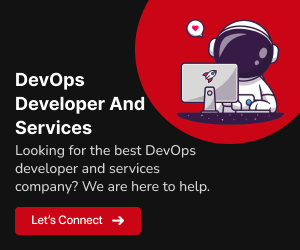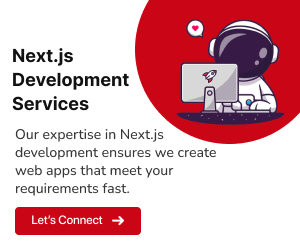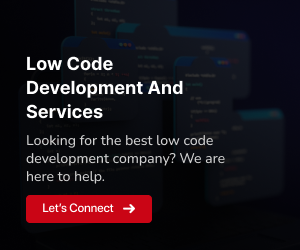Embarking on the Journey: Evaluating a Flutter App Development Company in the US
The journey to find the ideal Flutter app development company in the US begins with uncovering the hidden gems and navigating through a vast sea of choices. Like any grand adventure, evaluating potential partners for your mobile app project requires the right tools and insights. In this guide, we’ll pull back the curtain on the world of Flutter app development companies, shedding light on the criteria and strategies that will lead you to the perfect collaborator. Whether you’re a visionary entrepreneur with a groundbreaking idea or an established enterprise seeking digital transformation, our exploration will equip you with the knowledge needed to embark on this exciting journey. Let’s set sail and unveil the secrets to finding your Flutter development dream team.
Read more: Top 10 Mobile Apps Made with Flutter App Development Framework
Evaluating a Flutter App Development Company in the US
When considering a Flutter app development company for your project, a thorough evaluation is paramount. Your choice can significantly impact the success of your app. To guide your evaluation process, here are essential factors and questions to consider:
Portfolio and Expertise:
Portfolio Analysis:
Examine the company’s portfolio carefully. Look for projects that align with your app’s goals, industry, and complexity level. Assess the quality of their work and design aesthetics.
Domain Expertise:
Does the company have experience in your industry? Industry-specific knowledge can lead to better insights and tailored solutions.
Client References:
Client Testimonials:
Request references or testimonials from past clients. Contact them to learn about their experiences working with the company.
Case Studies:
Review case studies of successful projects. These provide in-depth insights into the company’s capabilities and results.
Development Team:
Team Expertise:
Evaluate the skills and experience of the development team members. Are they proficient in Flutter and other relevant technologies?
Team Size:
Consider the size of the development team. It should be adequate to handle your project’s scope and meet deadlines.
Project Management:
Project Lifecycle:
Inquire about the company’s project management approach. How do they handle project initiation, planning, execution, and closure?
Communication:
Ensure clear and frequent communication channels. Effective communication is vital for project success.
Technology Stack:
Tools and Technologies:
Verify if the company uses the latest Flutter tools and technologies. Staying updated is crucial for app performance and security.
Third-Party Integrations:
Ask about their experience with integrating third-party services and APIs into Flutter apps.
Quality Assurance:
Testing Practices:
Inquire about their quality assurance and testing procedures. A robust testing process ensures a bug-free app.
Bug Fixing and Updates:
Discuss how they handle bug fixes and app updates after the initial development.
Project Timeline:
Development Timeline:
Define the project timeline and milestones. Ensure they can meet your desired launch date.
Flexibility:
Assess their flexibility in accommodating changes or additions during the project.
Budget and Pricing:
Transparent Pricing:
Seek transparent pricing models. Ensure there are no hidden costs or surprises.
Cost Negotiation:
Discuss the possibility of cost negotiation without compromising quality.
Client Support:
Post-Launch Support:
Inquire about post-launch support and maintenance services.
Client Satisfaction:
Check client reviews and satisfaction levels to gauge their client support quality.
Key Questions to Ask
When evaluating Flutter app development companies, asking the right questions is essential. These inquiries help you assess their expertise, portfolio, technology stack, and more, ensuring a successful partnership. Here are key questions to consider:
Experience and Expertise
How long have you been working with Flutter?
Assess the company’s experience with Flutter to gauge their proficiency.
Can you provide examples of Flutter projects you’ve completed?
Review their portfolio to understand their capabilities and project diversity.
Technology Stack
What other technologies do you work with alongside Flutter?
Ensure compatibility with your existing tech stack.
Are you up-to-date with the latest Flutter updates and plugins?
Verify that the company keeps pace with Flutter’s evolving ecosystem.
Project Management
How do you handle project timelines and deadlines?
Learn about their project management processes and commitment to timelines.
What is your approach to communication during the development process?
Clarify communication channels and frequency.
Development Team
Can you introduce us to your Flutter development team?
Get to know the team’s size, roles, and expertise.
How do you handle resource scaling for larger projects?
Ensure they can adapt to the project’s changing demands.
Client References
Can you provide references from past clients?
Speak with previous clients to understand their satisfaction and experiences.
Cost and Budget
What is your pricing structure?
Discuss their pricing model and how it aligns with your budget.
Are there any hidden costs we should be aware of?
Ensure transparency in pricing and potential additional expenses.
Client Involvement
How can we be involved in the development process?
Clarify your role in the project and the level of involvement they expect from you.
Post-Launch Support
What post-launch support and maintenance services do you offer?
Discuss their commitment to ongoing support and bug fixes.
By thoroughly evaluating these factors and asking the right questions, you can select a Flutter app development company in the US that aligns with your project’s goals and expectations.
Read more: How to Implement Any UI in Flutter
Evaluating Intellectual Property Rights for a Flutter App Development Company
Dive into Their Patents:
Examine the company’s patent portfolio. Patents protect innovations and technologies. A robust patent portfolio indicates a commitment to staying at the forefront of technology.
Copyright Assessment:
Evaluate the extent of their copyrighted materials, including software code, creative assets, and content. Strong copyright protections ensure originality in their work.
Trademark Strength:
Check their trademark registrations. Trademarks protect brand identity. A well-maintained trademark portfolio signifies a dedication to maintaining brand reputation and recognition.
Trade Secrets and Confidentiality Measures:
Inquire about their trade secret protection and confidentiality protocols. Ensuring that your sensitive data is safeguarded is paramount.
Licensing and Compliance:
Confirm that the company complies with licensing agreements and open-source regulations. Non-compliance could lead to legal issues later.
IP Strategy:
Ask about their intellectual property strategy. Do they actively seek to expand their IP portfolio? A forward-thinking IP strategy demonstrates a commitment to ongoing innovation.
Legal Expertise:
Assess the company’s legal expertise in IP matters. A legal team well-versed in IP rights can provide guidance and protection throughout the development process.
Previous IP-Related Cases:
Inquire about any past IP-related legal cases or disputes the company has been involved in. Understanding their history can reveal potential risks.
Transparency in IP Ownership:
Ensure there’s transparency in IP ownership. You should have a clear understanding of who owns the IP developed during your project.
For a comprehensive exploration of the legal considerations surrounding intellectual property rights in the Flutter app development landscape, please refer to our dedicated blog post: USA’s Regulatory Landscape: Legal Considerations for Flutter App Developers. It provides valuable insights and guidance on assessing companies based on their intellectual property holdings.
Evaluating Flutter Development Companies Based on Community Involvement
When assessing a Flutter app development company for your project, their involvement in the Flutter development community is a critical factor to consider. Companies that actively participate in the Flutter community tend to have access to valuable resources, knowledge, and a network of experts. Here’s a comprehensive guide on how to evaluate a company’s community involvement:
Flutter Community Contributions:
- Investigate the company’s contributions to the Flutter community. This may include open-source projects, libraries, plugins, or tools they’ve developed and shared with the community.
- Look for their presence on platforms like GitHub, where Flutter-related projects are often hosted. Active contributions demonstrate a commitment to the ecosystem.
Participation in Forums and Discussions:
- Check if the company’s developers engage in discussions on Flutter forums, such as the Flutter Google Group or Stack Overflow.
- Active participation in these forums indicates a willingness to share knowledge and help others within the Flutter community.
Attendance at Flutter Events:
- Inquire whether the company’s team members attend Flutter events, conferences, or meetups. These gatherings are opportunities for knowledge sharing and networking.
- Participation in Flutter-related events showcases their dedication to staying current with Flutter trends and advancements.
Contributions to Online Resources:
- Explore if the company has contributed to online resources like Flutter tutorials, blog posts, or video tutorials that benefit the developer community.
- Sharing knowledge through these resources demonstrates their commitment to helping others succeed with Flutter.
Open-Source Projects:
- Look for any open-source Flutter projects initiated or maintained by the company. Active involvement in open-source development reflects transparency and collaboration.
Engagement with Flutter Core Team:
- Determine if the company’s developers have interacted with the Flutter core team, whether through contributions or direct communication. Such engagement indicates a deep understanding of Flutter’s inner workings.
Community Recognition:
- Research if the company and its developers have received recognition or awards within the Flutter community. Awards and acknowledgments can highlight their expertise and dedication.
Client Feedback on Community Involvement:
- Seek feedback from the company’s previous clients regarding their community involvement. Did the company’s community engagement positively impact the project?
By thoroughly assessing a Flutter app development company’s community involvement, you can gauge their dedication to the Flutter ecosystem and the wealth of resources they can bring to your project. A company deeply embedded in the Flutter community often possesses the expertise and insights needed to create exceptional Flutter applications.
Evaluating Flutter Development Companies Based on Project Management Tools
When considering a Flutter app development company for your project, their approach to project management and the tools and methodologies they employ can significantly impact the project’s success. Here’s a comprehensive guide on how to evaluate a company’s project management tools and methodologies:
Project Management Tools:
- Inquire about the project management tools the company uses. Familiar tools like Jira, Trello, Asana, or others can facilitate effective collaboration and task tracking.
- Assess whether the company’s chosen tools align with your preferences or if they can adapt to your preferred project management platform.
Agile Methodology:
- Determine if the company follows agile methodologies like Scrum or Kanban. Agile approaches provide flexibility, adaptability, and iterative development, which can be valuable for evolving projects.
- Ask about their sprint planning, daily stand-ups, and retrospective meetings to gauge their commitment to agile practices.
Project Workflow:
- Gain an understanding of the company’s project workflow. A structured approach with defined milestones and phases is essential for project progress tracking.
- Ensure that the workflow aligns with your project’s needs, ensuring clarity in project expectations.
Communication Protocols:
- Assess the company’s communication protocols. Clear and transparent communication channels are vital for addressing concerns and resolving issues.
- Discuss how frequently you’ll receive project updates and reports, ensuring alignment with your expectations.
Task Assignment:
- Inquire about how tasks are assigned within the team. A well-defined process for assigning and tracking tasks helps prevent bottlenecks and ensures accountability.
- Understand how they handle task prioritization and resource allocation.
Client Collaboration:
- Discuss how the company involves clients in project management. Client input and feedback should be integral to the development process.
- Determine if they provide access to project management tools for clients to monitor progress and provide input.
Risk Management:
- Inquire about their approach to risk management. How do they identify, assess, and mitigate project risks?
- Assess their ability to handle unexpected challenges and changes in project scope.
Scalability and Flexibility:
- Consider if the company’s project management processes are scalable to accommodate changes in project size or requirements.
- Discuss their flexibility in adapting to evolving project needs and adjusting project management strategies accordingly.
By thoroughly evaluating a Flutter app development company’s project management tools and methodologies, you can ensure that their approach aligns with your project’s requirements and preferences. Effective project management is essential for delivering successful Flutter applications on time and within budget.
Choosing the Right Path
Embarking on the journey of evaluating a Flutter app development company in the US requires careful navigation through multiple factors and considerations. From assessing their technical prowess to understanding their project management approach, making an informed decision is key to your project’s success. By delving deep into these evaluation criteria, you can confidently select a partner that aligns with your vision and helps you transform your app idea into a reality.



















